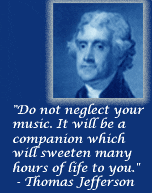
The Greatest Tenors?
By Tim Snider
The great tenor Placido Domingo has retired from singing the tenor repertoire, now singing and recording the Verdi baritone repertoire. It is time to reconsider an article from BBC Magazine from about five years ago, surveying supposedly knowledgeable listeners on the greatest tenor “of all time.” Domingo, although not high on that list, should have been (no singer ever has sung Parsifal, Don Carlo, Gherman, Don José, and Le Cid, let alone more than 120 other roles, with such consummate musicianship)
It all depends on one’s criteria. How can we compare any tenor of today with all other tenors of the past? No one alive today ever heard Tamagno, Rubini, or Duprez, so how can we compare Corelli or Vickers to tenors we have never heard? We know from contemporary accounts what respected musicians of the time thought of them, but then again a critic as qualified as Berlioz never heard Pavarotti, so how is one to judge? If we limit the field to those tenors that we have heard, either live or on record, then the list makes some sense. That said, left off the BBC’s list were Del Monaco, the greatest tenore di forza, and Simoneau, a superior Mozart tenor.
In terms of the influence on his contemporaries and future generations of singers and listeners, Caruso stands alone. Tulio Serafin, a conductor who heard more fine singers than anyone else, said that he had heard many great singers, but only three great voices, one of whose was Caruso’s. His records are still best sellers.
If the criterion is sheer beauty of the voice, Pavarotti, Gigli, and Wunderlich are at the top of the heap. If the standard is technical excellence, singers today still learn from McCormack and Björling. There is no more demanding repertoire than Wagner, and Melchior sang that repertoire better than anyone else.
If the test is sheer visceral excitement on a given night, I would have bought a ticket to hear Corelli any time. And there was no more compelling singing actor than Vickers (along with Domingo perhaps). When it comes to suave, immaculate singing, then Bergonzi and Kraus are among the finest. Tucker was the “Italian tenor” of choice at the Met for years.
Although Caballé sang a huge repertoire, no one except perhaps the great 19th Century basso Luigi Lablache has even come close to the range of Domingo’s repertoire. He did not have the beautiful, free, ringing top of a Pavarotti or a Gigli, but he has a warm, rich, baritonal midrange that is the envy of other tenors. Only Ramon Vinay may have been his equal in that respect. But Domingo is a towering stage presence, not to mention the consummate professional.
Vinay, like Vickers and Domingo, was a great Otello, and Vickers, like Domingo, was a great Siegmund. But while Vickers made Grimes his own, he would not have touched the lyric roles that Domingo sang. So, Caruso is still the “Babe Ruth of Tenors,” but Domingo is not far behind, then maybe the next six or seven of your favorite tenors in whatever order you prefer. Bergonzi, McCormack, Corelli? Take your pick.
Do we have any future candidates from today’s tenors? Maybe Kaufmann, or perhaps Floréz in the repertoire of his choice.

